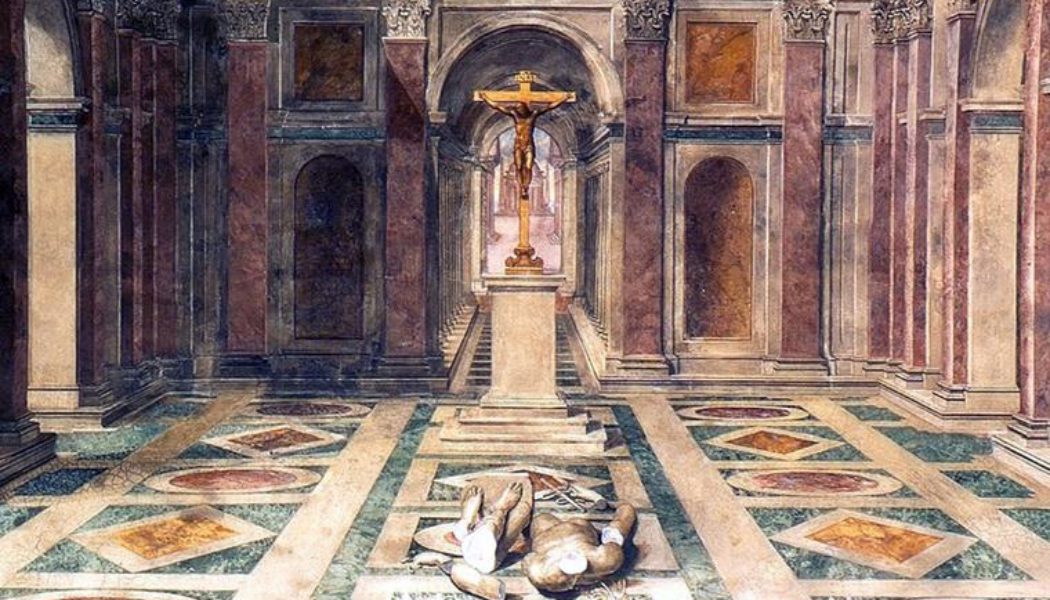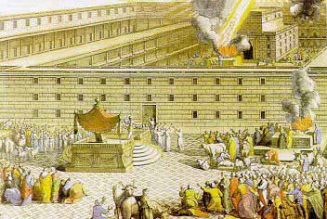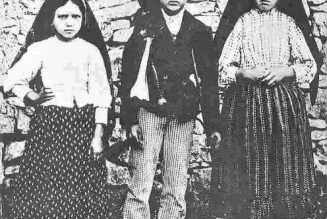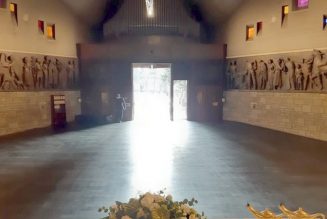
Leaving Los Angeles (the “City of Angels”) recently, my wife and I landed in Las Vegas (“Sin City”) where we were forced to spend three hellish hours waiting for another flight.
One’s heart goes out to the poor souls who must live and work there. What a dreadful place it must be. Unless you love slot machines and are eager to try your luck, it is not a suitable setting for the cultivation of the soul.
And to be sure, even if you do work the slots and win big, the money will not last — especially if, like most travelers stuck between cities, you get hungry and thirsty. These are not negotiable needs, by the way, particularly in the company of small children, who have no appreciation for the concept of deferred gratification. Substantial outlays of cash, therefore, will be necessary when traveling. Nothing is free — not even a bottle of water on an airplane, or those wretched little bags of pretzels.
Why, you may be asking, do I bring this up? Because it provides a window on the future, which does not look good. And I don’t mean ever more expensive bottles of water and bags of pretzels. I mean that we are moving into a thoroughly paganized world, where it becomes increasingly difficult to find kindred souls who actually believe in Christ and can recognize a society even residually shaped by his message.
These days, it seems, his very presence has become an absence, one which more people than ever neither notice nor miss. We are living, as George Steiner once put it, in the age of the afterword, the real Word having fallen silent.
But it will not be like the paganism of the past which, until Christianity came along to sweep it all away, defined the world of our ancestors. “The gods,” exclaimed Thales of Miletus, whom Aristotle regarded as the first philosopher of the Greek tradition, “they are everywhere.” One could not escape their power, only placate it, which became a fulltime job — and failure was not an option. “As flies to wanton boys,” warns Shakespeare, “are we to the gods; / they torture us for their sport.”
But the pagan world did not survive. Indeed, the great god Pan was forced to flee, driven from the sacred groves over which he once presided. And there is no going back to those simpler and, some would say, more halcyon times before the triumph of Christianity, whose God at least knew how to climb out of the grave. Which is, after all, the heart of the Christian Story, to wit, “the tale of the time,” to quote that wonderful apologist Dorothy Sayers, “when God was the underdog and got beaten, when he submitted to the conditions he had laid down and became a man like the men he had made, and the men he had made broke him and killed him. This is the dogma we find so dull — this terrifying drama of which God is the victim and the hero.”
And yet, for those who still find it dull, who pine for fleshpots more immediate than the pale tokens of faith, there is no going back. Those bridges were burnt so long ago that they simply cannot be rebuilt. No one can build back better upon pagan foundations. “The renunciation of the first few Christian centuries,” comments Joseph Ratzinger in Introduction To Christianity, a book one can never get enough of, “has turned out to be so effective historically that the gods have disappeared beyond recall.”
So there really is no going back. Once the Incarnation happened, and eternity entered time to pitch its tent in the midst of our world, the attractions of paganism lost their allure. Quite simply, the gods are no more. Nevertheless, Ratzinger adds, “the powers expressed in them have not disappeared, nor has the temptation to regard them as absolutes. Both facts are part of the basic human situation and express the enduring ‘truth,’ so to speak, of polytheism; we are threatened no less than the people of ancient times by the tendency to make absolutes of power, bread and Eros.”
The gods may be gone, in other words, but the awful seductions remain — yes, even when your travels do not take you to Las Vegas. The good news, however, is that their pretensions have been completely stripped away, thus exposing their essential emptiness. Like the slot machines lined up row upon row to entice the weary traveler with false promises of pleasure and profit, the removal of the gods is not reversible. They will not be coming back. Because, as Ratzinger reminds us, “even if the gods of those days are still ‘powers’ which try to claim absoluteness, they have irrevocably lost the mask of divinity and must now show themselves unmasked in their true profanity.”
Thus, there really is a difference, sundering in its implication, between the paganism before Christ came to deliver us from it, and the neo-paganism of today that disdains even the need for deliverance. In that sense, the earlier pagan soul was a good and wholesome thing to possess, wholly of a piece with the fears and longings of men who have not yet come to know Christ. Indeed, our natural state is paganism, reflecting the need of those who cannot bear to be alone in the universe. It is only the atheist who remains stuck in a sub-natural state, preferring with utmost perversity an eternity of the self-centered self.
And Christianity? It is wonderfully supernatural, evincing the great leap from mythos to Logos, religion to Revelation. On the strength of the first, man may be defined by the quest to find God; in the second, it is God’s answering response, from the One who comes tirelessly in search of man.
One does not need to play the slots to know which of the two yields a higher percentage.
Join Our Telegram Group : Salvation & Prosperity









